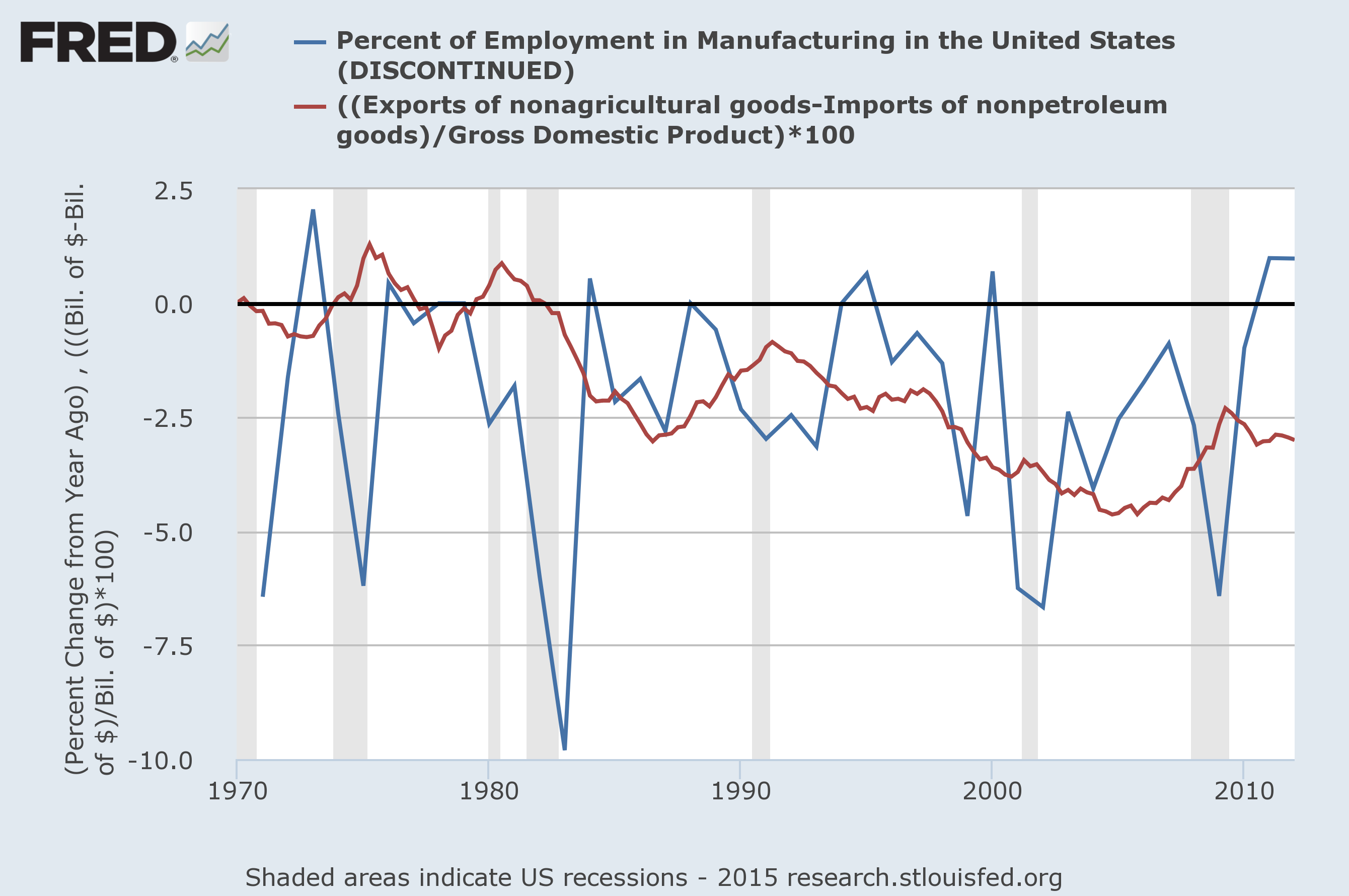May 19, 2015
Paul Krugman addressed the question of whether the decline in manufacturing employment can be attributed to the trade deficit. He rightly points out that most of the decline is due to productivity growth, but notes the trade deficit has been a contributing factor. It is worth adding a bit more to the discussion.
The manufacturing share of employment has been declining for more than half a century. The story is that productivity growth is generally faster in manufacturing than the rest of the economy. If, as a first approximation, our demand for manufactured goods increases at the same pace as our demand for all goods and services, then this means we will see a declining share of employment in manufacturing over time.
However, a trade deficit adds to this loss by having a substantial share of manufactured output produced elsewhere. This means that in addition to needing fewer workers to produce the manufactured goods we consume as a result of productivity growth, we also need fewer workers in the United States since a portion of our manufactured goods are being provided by workers in other countries.

This not very pretty graph shows the percent change in the share of manufacturing employment compared to the non-oil, non-agricultural deficit in goods trade as a share of GDP. Note the sharp in decline in shares in the 2000s when the trade deficit was increasing rapidly. In 1997, when the trade deficit in goods was 2.0 percent of GDP, manufacturing accounted for 17.2 percent of total employment. When the deficit peaks at 4.6 percent of GDP in the first quarter of 2005, manufacturing employment was down to 11.5 percent of total employment. This is a decline in share of almost one-third in the span of just eight years. That was not due to productivity growth.
It is incredibly dishonest for proponents of TPP to try to pretend that imports don’t displace manufacturing jobs. They do. This doesn’t necessarily mean that TPP is a bad pact, it is just one of the factors that has to be considered in assessing the deal. If the TPP proponents don’t think they can acknowledge this simple fact and still sell their trade pact, then they must not think they have cut a very good deal for the country.







Comments